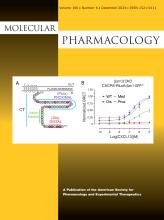Abstract
Regulator of G protein signaling 2 (RGS2), a Gq-specific GTPase activator protein (GAP), is strongly implicated in cardiovascular function. RGS2-/- mice are hypertensive and prone to heart failure and several rare human mutations that speed RGS2 degradation have been identified in hypertensive patients. Consequently, pharmacological up-regulation of RGS2 protein levels could be beneficial. We utilized a β-galactosidase complementation method to screen several thousand compounds with known pharmacological function for those that increase RGS2 protein levels. Several cardiotonic steroids (CTS), including ouabain and digoxin increase RGS2 but not RGS4 protein levels. CTS increase RGS2 protein levels through a posttranscriptional mechanism by slowing protein degradation. RGS2 mRNA levels in primary vascular smooth muscle cells are unaffected by CTS treatment while protein levels are increased 2-3 fold. Na/K-ATPase is required for the increase in RGS2 protein levels as the effect is lost in Na/K-ATPase knock-down cells. Furthermore we demonstrate that CTS-induced increases in RGS2 are functional, reducing receptor-stimulated Gq-dependent ERK phosphorylation. Finally, we show that in vivo treatment with digoxin leads to increased RGS2 protein levels in heart and kidney. CTS-induced increases in RGS2 protein levels and function should modify several deleterious mechanisms in hypertension and heart failure. This novel CTS mechanism could contribute to the beneficial actions of low dose digoxin in heart failure. Additionally, our results support the concept of small-molecule modulation of RGS2 protein levels as a new strategy for cardiovascular therapeutics.
- Received April 12, 2012.
- Revision received June 11, 2012.
- Accepted June 13, 2012.
- The American Society for Pharmacology and Experimental Therapeutics






